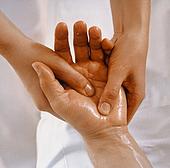The human tongue is a muscular organ covered in pink tissue known as mucosa. On the surface there are tiny bumps called papillae, which give your tongue its rough texture. The surface is also covered with taste buds that connect to nerves running to your brain. You can tell a lot about your health by looking at your tongue. For instance, the appearance of your tongue can indicate a fever, deficiencies in your diet, diabetes, or an oral infection.
A healthy tongue is pink and clean. If your tongue or gums are sore or swollen and you think you may have an oral infection, don’t wait it out or it could develop into something more serious. Seek the advice of a 24 hour dentist, he or she will be able to diagnose and treat the problem straight away.
What Your Tongue Can Tell You
Look in the mirror and stick out your tongue to see if you have any of these health conditions.
A thick coating. If the surface of your tongue is covered in a thick, white cheese-like coating, you may be suffering from a condition called thrush. Oral thrush is a type of yeast infection that is common among young children. It can arise in adults, particularly those who wear dentures or have a compromised immune system. It may also occur if you’re taking a course of antibiotics. If you think you have oral thrush, visit your doctor who will know how to treat it.
A cracked surface: Cracks down the middle or on the upper surface of your tongue do not necessarily have any negative connotation. Only a very small population of the U.S. has fissures in the tongue, actually less than 5 percent. Often, it is genetically inherited. If however, you notice fissures accompanied by swollen lips or face, see your doctor as soon as possible. These could be symptoms of an uncommon disease known as Melkersson-Rosenthal syndrome.
Tongue sores: Sores can be caused from accidentally biting your tongue. If they appear suddenly, they are probably canker sores. Though the precise cause of these sores is not known, they can be triggered or worsened by acidic foods or stress. If sores are persistent or they worsen, you should see a doctor in case they are signs of oral cancer.
White patches: If you notice white patches on the upper surface, sides or lower surface of your tongue, this could be due to a condition known as leukoplakia. This is not a dangerous condition but it can be severe. It is thought to be caused by smoking or chewing tobacco.
Bright red tongue: If your tongue has a bright red color and you are also experiencing a high grade fever, you should contact your doctor straight away. It could be a sign that you have scarlet fever – an infectious bacterial disease, or Kawasaki disease – an illness that causes inflammation to the lymph nodes and arteries. Otherwise, a bright red tongue could be a sign of folic acid or vitamin B-12 deficiencies.
Yellow or brown stains: If you have yellow or brown stains on your tongue, this is an indication that your oral hygiene is not up to par. Although the papillae are usually gradually worn down by chewing and drinking, they can become overgrown. This can affect your sense of taste and cause bad breath. As well as poor oral hygiene, a dark colored, hairy tongue can be caused by drinking coffee and using tobacco products. Using a tongue scraper or brushing the tongue can help.
Burning tongue: If you are experiencing a burning sensation, this may be caused by an allergic reaction to your toothpaste. Try switching your toothpaste to one that doesn’t contain sodium lauryl sulfate (SLS). If this does not help, and the feeling is not accompanied by redness of the tongue’s surface, it could be a symptom of hormonal changes brought on by menopause.
Even a healthy mouth is full of bacteria. Between 500 and 650 different species of bacteria live on the teeth, tongue and inner cheeks. They are a mixture of gram-positive and gram-negative bacteria. If they are balanced they create a healthy environment in your mouth. If gram-negative bacteria become predominant, they can cause bad breath and other problems. Each time you clean your teeth, brush your tongue and rinse with anti-bacterial mouthwash to keep your mouth healthy.
Mike Plambeck is a dental marketing professional who writes about the world of online dental marketing as well as educational dental health topics. He lives in Lincoln, NE and raises 2 kids, Noah and Dani, along with his wife Marissa.




